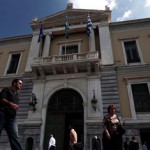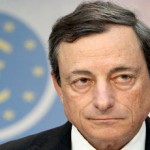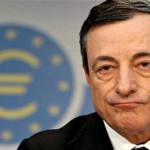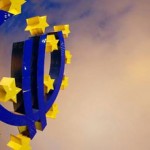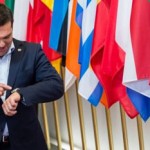Talk Is Cheap for Euro as QE’s Diminishing Returns Thwart Draghi
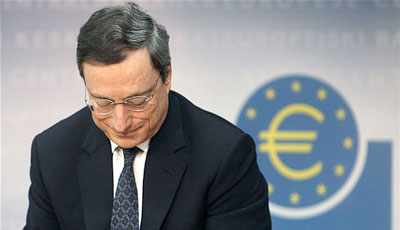
-
ECB chief reiterates willingness to ease, yet currency gains
-
Debatable whether more stimulus can weaken euro: Investec
Traders are losing their faith in Mario Draghi’s ability to weaken the euro.
The European Central Bank president has reiterated at least four times since the start of September that he’s willing to expand the region’s money supply to stimulate the economy, yet the shared currency has jumped 1.8 percent against the dollar.
That’s in contrast with before the program started. When the policy chief said in May 2014 he was “comfortable” with more monetary easing, it proved a turning point. The euro tumbled from a 2 1/2-year high and then kept falling for the next 10 months. Of the 16 banks to revise their forecasts for the currency in the past week, half raised their calls with the remainder standing pat — and none cutting.

“The great majority of the euro’s weakness occurred whilst the ECB was talking about quantitative easing rather than since they’ve actually done it,” said Philip Shaw, chief economist at London-based Investec Plc, which raised its year-end forecast to $1.08 from $1.06 at the start of September. “It’s debatable exactly how effective an extra tranche would be.”
While Draghi and his colleagues have been careful not to say they’re deliberately targeting the exchange rate with their 1.1 trillion-euro ($1.2 trillion) bond-buying program, they’ve repeatedly acknowledged a weaker euro would help the economy by boosting growth and inflation.
The 19-nation currency has largely traded between $1.05 and $1.15 for the past six months, pulled between the depreciating effects of more cash flowing through the economy and the support created by wagers the Federal Reserve will hold off raisinginterest rates.
Before it got stuck in that range, the euro tumbled from a peak of $1.3993 on May 8, 2014 — the day Draghi hinted he may keep easing policy — to a 12-year low of $1.0458 a week after the QE program started this March. It was 9 percent stronger than that low at $1.1407 as of 8:51 a.m. in London.
Abandoning Parity
“When you get a step-up in QE, that probably will push euro-dollar down a bit, but not below $1.10 again,” said Georgette Boele, an Amsterdam-based strategist at ABN Amro Bank NV, which raised its year-end estimate more than any other forecaster in the past week, to $1.12 from $1. “You can’t say that you see parity any more.”
Draghi and his colleagues look set to receive a reminder of how much they need a weaker currency on Oct. 16, when inflation data are due that economists predict will confirm consumer prices fell last month.
The central bank’s own economic models suggest that a 5 percent decline in the euro’strade-weighted rate may boost economic growth by 0.3 percent and inflation by 0.5 percent.
The ECB is ready to use all the instruments at its disposal to help the euro-zone economy, including tweaking the size of the stimulus program, its duration and the type of assets it can buy, Draghi said at the International Monetary Fund meeting in Lima last week.
Policy makers seem content to let the program run its course for now, with Governing Council member Benoit Coeure telling CNBC on Monday that, while they stand ready to act if necessary, expanding stimulus at the moment would be “premature.”
Shock Value
The ECB may have to surprise markets if it’s to weaken the euro substantially, according to Jane Foley of Rabobank International, whose predictions since the first quarter have beaten the median estimates in Bloomberg’s survey for accuracy.
Rabobank sees the euro falling to $1.09 by year-end, in line with the market consensus, though that’s up from its estimate of $1.06 at mid-year.
“It’s going to be difficult for the ECB to get the market going in terms of further downside momentum for the euro,” said Foley, a senior foreign-exchange strategist at the Dutch bank in London. “They may have to do something bigger than the markets anticipate to get a reaction at all, and that reaction is likely to be curtailed compared with what we saw at the start of the year.”
Source: Bloomberg – Talk Is Cheap for Euro as QE’s Diminishing Returns Thwart Draghi









